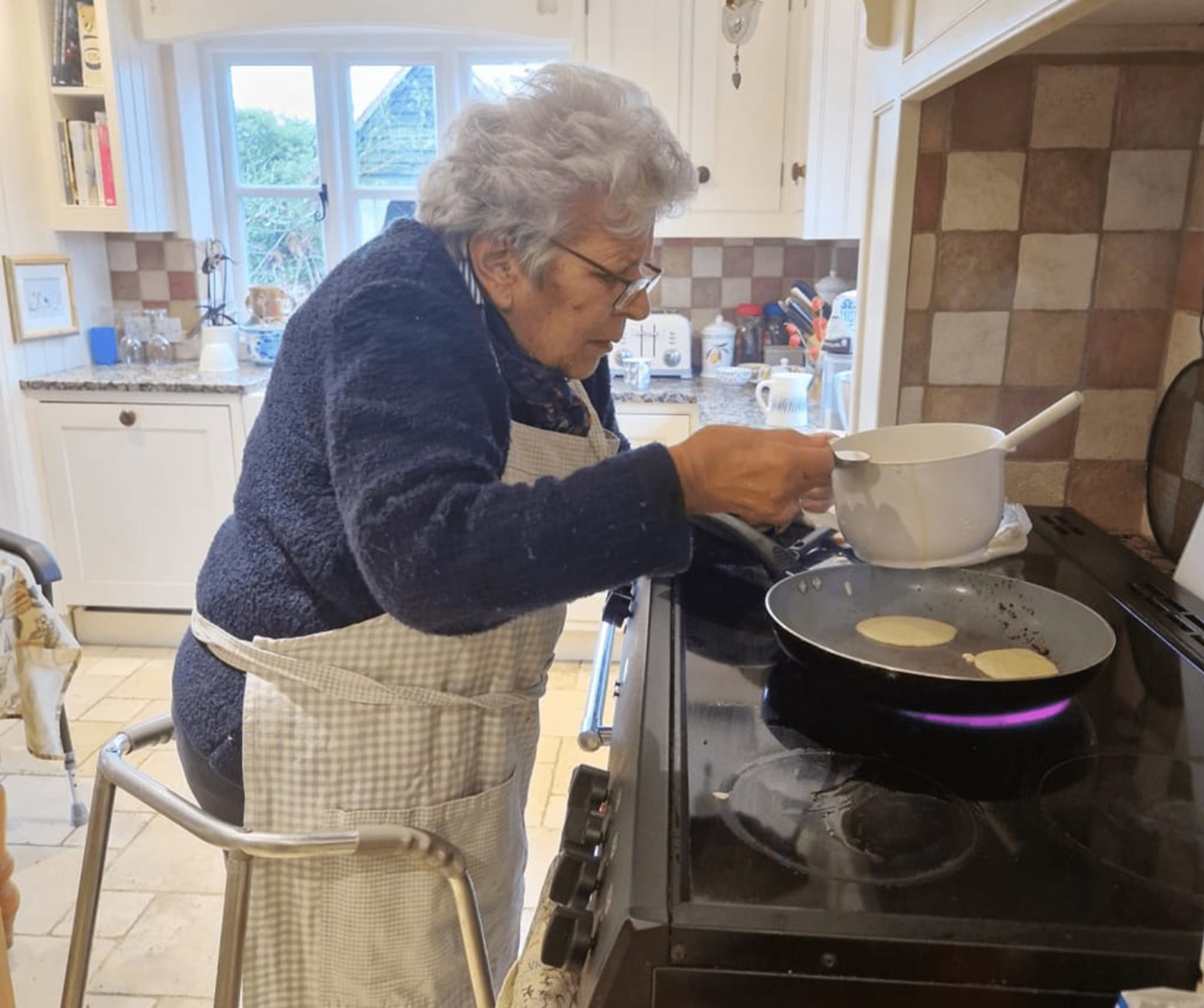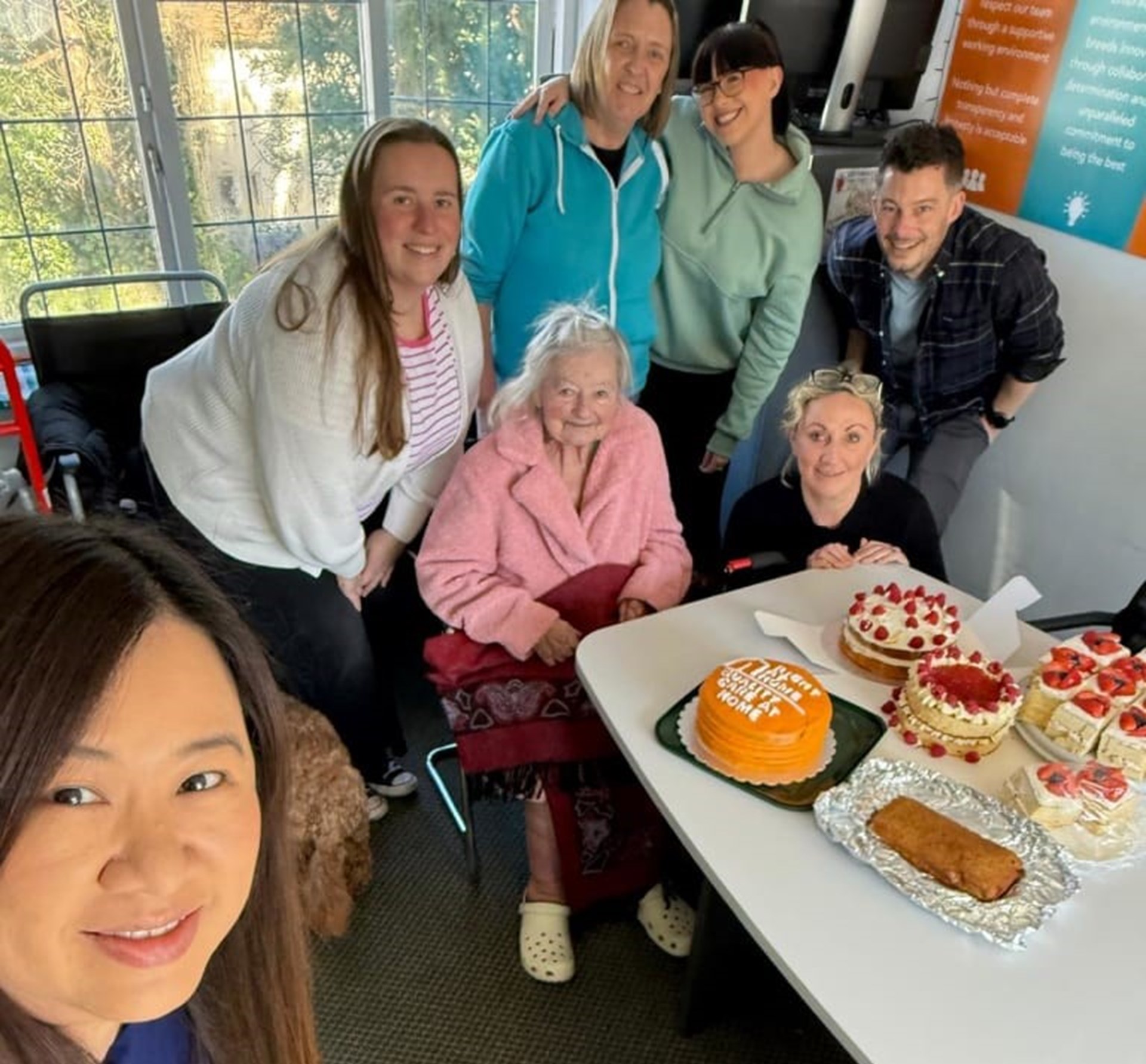
Supporting People Living With Dementia
How Homecare and Families Can Work in Partnership
Published: 19/03/2025
Bridging the Gap: How Homecare Supports Families and the Dementia Client Relationship
Caring for a loved one with dementia is an emotional journey - one filled with love, frustration, grief, and moments of pure joy. Family carers give so much of themselves, often putting their well-being on hold to provide the best care possible. As homecare professionals, we play a vital role not just in supporting the person living with dementia but also in strengthening the relationship between them and their family carers.
Encouraging Meaningful Connection, Not Just Care Tasks
It’s easy for family carers to get stuck in a functional role - handling medication, managing appointments and meeting personal care needs. But dementia doesn’t erase the bond between a mother and daughter, a husband and wife.

Instead of a husband feeling like he is just a “carer” during visits, we encourage moments of connection. If his wife loved cooking, why not invite him to help set the table and pour her a glass of wine when they sit down to eat lunch? Simple, meaningful activities can help rekindle their connection beyond caregiving.

Helping Family Carers Understand Changing Communication
Dementia affects how a person understands and expresses themselves. Family members often struggle with repeated questions, forgotten names or unexpected behaviours. We can assist them in adapting their communication style with patience and empathy.
If Dad keeps asking, “When are we going home?” Instead of correcting him, we can gently guide his daughter to embrace his reality by saying, “Tell me about home, Dad. What do you love most about it?” This approach acknowledges his emotions while steering the conversation in a comforting direction.
Creating Opportunities for Familiarity and Routine
Familiarity is essential in dementia care. A cluttered environment can feel overwhelming, triggering agitation, confusion and even safety risks. By keeping a space tidy and well-organised, we create a sense of calm and security, helping the person feel more at ease in their surroundings.
During care visits, reducing clutter isn’t just about tidiness - it’s about minimising stress and making daily tasks easier. For example, if Aunt May struggles to find her favourite teacup due to a crowded kitchen counter, she may become frustrated or distressed. Ensuring that essential items are within reach and removing unnecessary clutter can make a significant difference, helping her feel more in control and comfortable in her home.
Reassuring Family Members That Taking a Step Back Is Okay
Guilt can be one of the biggest challenges for family carers - guilt for feeling exhausted, for taking a break, or even for struggling to feel like the same loving daughter or son they once were. As home carers, we reassure them that prioritising their wellbeing doesn’t mean they love their relative any less.
If a wife feels guilty for needing a weekend away, we remind her, “Your husband is in good hands, and when you come back, you’ll feel more refreshed to share quality time with him.” A little reassurance goes a long way in helping carers let go of unnecessary guilt.
How We Bridge the Gap Between Professional and Family Care
The most effective homecare happens through collaboration. Rather than working separately, we actively involve family members in the care process, ensuring they feel informed, supported, and engaged in ways that suit their needs.
A son who lives far away might appreciate a quick update via a WhatsApp message: “Mum had a lovely morning walk in the garden today and enjoyed a crochet project.” These small updates help family members stay connected and reassured, even when they can’t be there in person.
Final Thoughts
Supporting a loved one with dementia is not easy, but family carers don’t have to do it alone. The homecare partnership can strengthen relationships between family members and their loved ones by encouraging meaningful connections, easing communication challenges, and offering reassurance.

At the heart of dementia care, beyond routines and appointments, is love - and that’s something our team nurtures every day.
